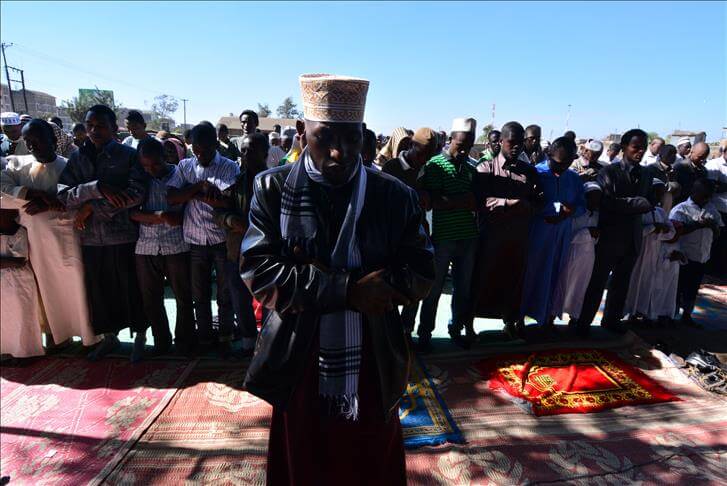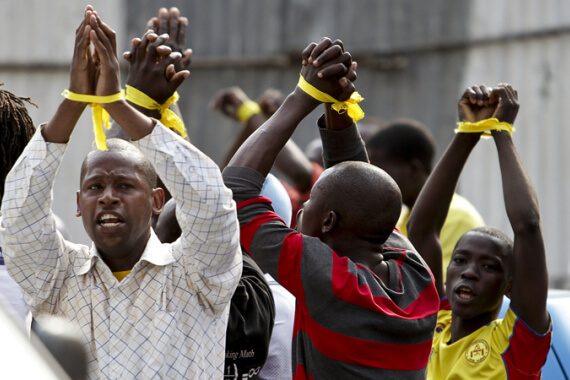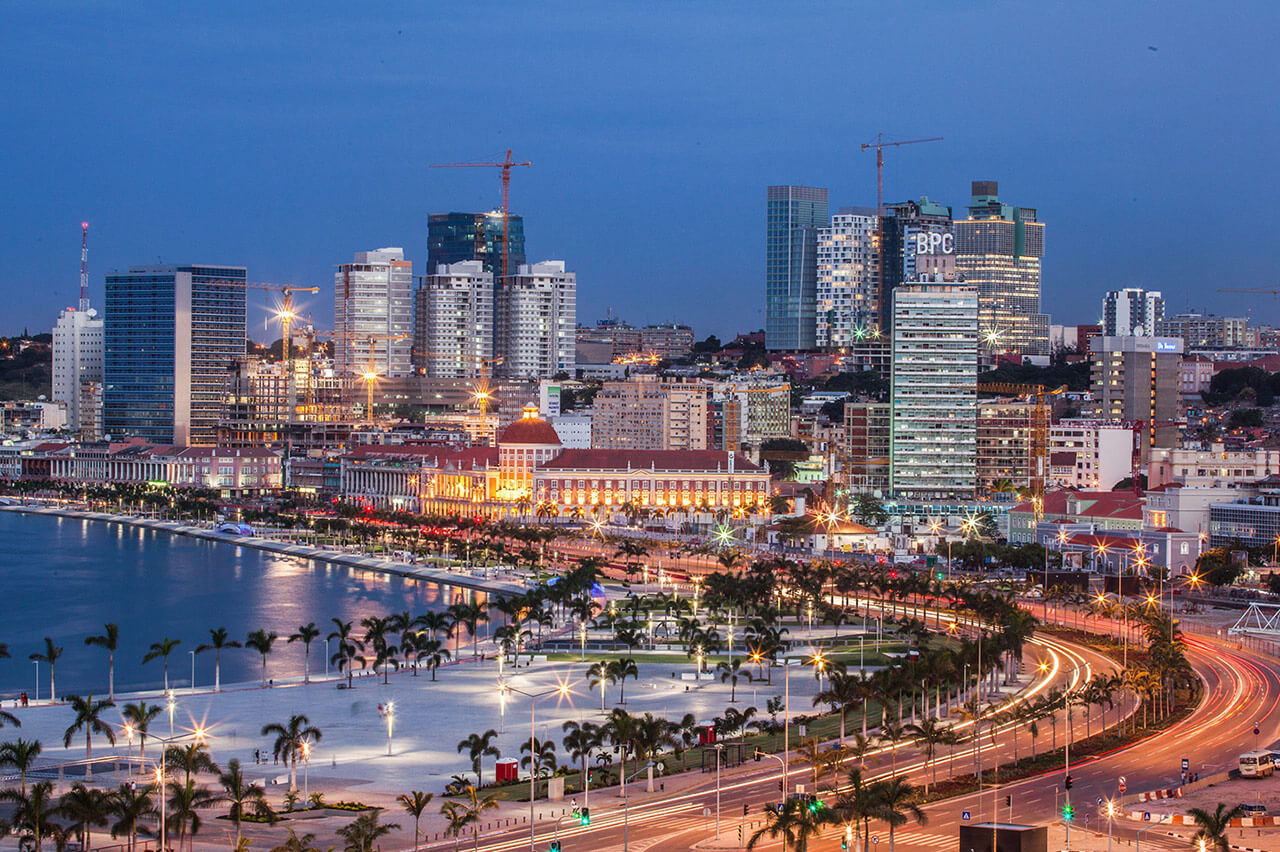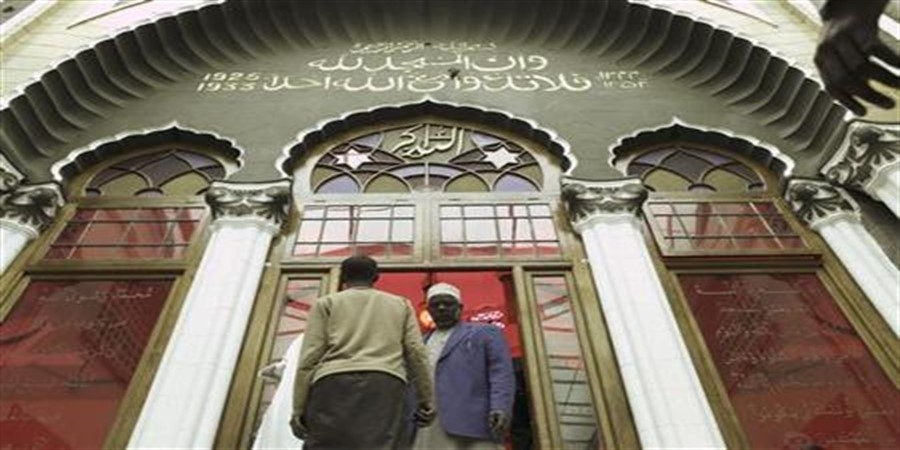With the constant pressure around us, our feelings have shrunk like a gasless balloon. Happiness-pain, wonder-despair nothing touches us nowadays. Blood, corpses, and tears- how much can be tolerated. It is difficult to remember exactly when our miserable journey in national life began. No one knows when and where this journey will end. Nowhere is the slightest light of possibility seen.
I am waiting for the bad news, my mind trembles all the time with unknown fears. The reverse of life seems to have become our destiny.
At the end of November [2015], when this was the reality of beloved Bangladesh, suddenly the news came – Islam has been banned in Angola. Statewide. At the same time, mosques have been ordered to be demolished.
Short news – only two lines in length, but it took the world by storm. Is it possible in this age? Waves of wonder, anxiety and anger swept through the hearts of millions of believers. Faith was swept away. Where Angola , Islam and the Muslim issue did him so much damage, why the mosque should be demolished, how are the Muslims there – the comment box on social media was filled with thousands of questions. Protests spread across the country.
However, with great regret, we noticed that in just a few days, the whole thing went into hiding again. Absolutely disappeared, as if nothing had happened. No practical steps were taken to verify the news, search for local Muslims, the position and statements of the accused persons and the state; Neither from a Muslim state, nor from any influential Islamic organization. Why?
Islam is Illegal and Banned in Angola

The fact that Islam is illegal and banned in Angola is administratively proven. The news of demolition and closure of mosques is also not untrue. In a statement issued on November 22, Angola’s Minister of Culture Rosa Krusey said:
His country’s Ministry of Justice and Human Rights has not approved Islam as a legitimate religion. So the mosques will remain closed until further notice. He added that it was important to ban Islam because it contradicted Angola’s cultural practices. Just a day later, the current president of Angola, Jose Eduardo dos Santos, said the move was the final “settlement of Islamic influence in our country.”
Although the ban on Islam in Angola may seem like a recent step, in reality it is only part of a series of persecutions of local Muslims over the centuries.
For the first time, the issue received widespread media coverage as two mosques were demolished and six others closed in the capital, Luanda, in just a couple of weeks, with direct statements from two of the country’s top officials.
Otherwise, the work of demolishing and closing the mosque has been going on there for a long time.
Dozens of Mosques have been Demolished

Four mosques in the capital were closed in 2004 and 2006. In November 2011, a mosque with a minaret was demolished by the armed forces. Last year, Muslims applied to build a mosque on the land they bought. After waiting for a few months and not getting any response, the authorities came and demolished it. In 2012, another mosque was demolished on the same pretext. Many buildings in the city of Jutio were locked and used by Muslims as temporary mosques. A mosque was also demolished in Luanda last October. In all, dozens of mosques have been demolished in Angola over the past few years on the pretext of lack of approval. Hundreds of mosques have been locked.
The Angolan government has denied the allegations in a statement issued Friday stating “Similar, baseless allegations concerning Islam have been made more than once. Angola has not declared war on Islam, and the religious rights of all its citizens are constitutionally guaranteed. In addition to the statement, they have tactically stated that 194 other religions, not just Islam, are not state-recognized in that country. They have allegations against more than 1,000 unauthorized religious establishments and will take action against them in phases.
Whatever they say in the face of temporary pressure, the matter is actually the same. There is no difference between taking action against religious citizens and religious establishments from time to time on the pretext of banning religion and not recognizing it.
The Angolan constitution, like other modern states, guarantees the religious freedom of the people. Their constitution says, ‘Freedom of conscience, religion and practice will be inviolable. No one should be embarrassed by any question or example about his religious beliefs, ideology and political ideology. No one can even be asked about his religion without the need for information from the state. ‘
In this case, the question arises, why did the government go to ban Islam even though religious freedom is constitutionally recognized?… It would be better not to discuss from this point of view. Because, Islam was never allowed there, so there is no question of being banned.
To this day, Angolan Muslims have failed to get government approval for the legitimacy of their religion – on the basis of which they can build mosques and other Islamic structures there, secure their position as a legitimate religious group, or enjoy all religious rights like others.
Angola Declares War on Islam

Although Angola is a country of many religious groups, the religious rights of most ethnic groups are very limited there. Since 1991, about 900 local religious groups and organizations, including various indigenous religious groups, have failed to apply for legal recognition. According to a report, more than 2,000 religious groups are currently operating in Angola without the approval of the administration. The last religious group was approved in 2004.
This is not the case with the Angolan government openly opposing the ratification or violating religious rights. The whole approval process is conducted in such a way that it is almost impossible for any religious group or organization to get state recognition except for two or four.
By law, a religious group must have at least one million adult members or followers under it in order to receive state approval . And compulsorily reside in at least 12 of Angola’s 18 provinces. First they have to apply to the law ministry. After a preliminary investigation, it will go from the law ministry to the culture ministry. Approval will be given only if the government agrees after a thorough investigation.
There is talk here too. Although the number of inhabitants of other religions is properly counted, the issue of Muslim population is neglected. The last census in the predominantly Christian state was in 1980. Now, according to all and according to the information of all Islamic organizations, the actual number of Muslims has exceeded one lakh long ago, but the government has long kept this figure in the quota of 80-90 thousand.
As a result, local Muslims have been deprived of this basic legal right for years. The Angolan Muslim community submitted two separate joint appeals for state recognition of Islam in 2004 and 2006, but received no response from the government. Besides, he did not get any cooperation from the administration at different times on other issues including construction of mosques and Islamic facilities locally.
Angola is a small country in southwestern Africa. On three sides are the three African countries Rwanda, Namibia and Zambia and on the other side the world’s largest ocean Atlantic.
Until 1965, Angola was under Portuguese rule and was also known as Portuguese West Africa. The country gained independence in 1965 after nearly 15 years of war against the Portuguese. Soon after independence, civil war broke out between the opposition Angolan factions and lasted for 26 long years until 2002.
After several failed peace talks in 2002. The civil war ended with the death of UNITA leader Jonas Savimbi. The power of the state is firmly in the hands of the MPLA leader and current president Jose Eduardo Santos.
More than a million people were killed in the war between the UNITA and the MPLA. 4 million Angolans were displaced. More than half a million people are forced to choose refugee life. In this civil war, the United States and South Africa supported the UNITA and the former Soviet Union and Cuba supported the MPLA.
The current capital and largest city of Angola is Luanda. The official language of Angola is Portuguese, although most Portuguese have left the country. Apart from Portuguese, most Angolans usually speak one of the local Bantu languages.
The total population of Angola is 19-20 million or about two crores. 70-75% of the people are Catholic Christians. 10% are Protestant or white or fundamentalist Christians. 5% of Brazilians are devoted to the evangelical church. Except for a few Jews, the rest of the Muslims are a minority.
Angola has the potential to become the richest country in Africa. The country is rich in petroleum resources, hydropower potential, fertile farms, diamonds and other mineral resources.
To Divert the Attention of The Country & World from All Matters of The State

The current president of Angola, Jose Eduardo Santos, came to power in 2002 after nearly 42 years of war (15 years of independence, 26 years of civil war). But despite such a single power and huge mineral resources, he could not do much for the development of the country. About 63% of his country’s GDP comes from oil exports alone.
But according to a United Nations report, his country ranks 147th out of 183 countries under a development index. Almost the entire administration of Santos (more than 75%) is mired in widespread corruption. Instead of frowning, he focused on perpetuating his power. As the ruling party, it amended the constitution in 2010 to remove the people-based electoral system and transform the presidency system into a majority party selection. However, other opposition parties, including the UNITA, have been protesting since the beginning.
Then in 2012 he arranged a secret election. 72% turnout was shown by force. But there were no foreign observers. Opposition parties were cornered by widespread repression.
According to a report by the Human Rights Watch Association, he came to power through a series of arrests, intimidation and harassment. Journalists and local observers were also arrested.
The political and economic situation in Angola, which seems to be inconsistent with the subject, has been discussed for so long for a special reason.

The current president and his party are not in a favorable position at all. The country’s economy is in shambles, development is in shambles, administrative corruption has broken all past records, several reports of failure to protect basic and cultural rights of citizens have been submitted to UN, human rights organizations including Human Rights Watch are not favorable There is a question. So all in all, the Santos government should be forbidden to sleep.
Many believe that in such a situation, engaging in the process of banning sensitive issues such as religion, especially becoming interested in Islam, is the only way to divert the attention of the country and the world from all aspects of the state and increase its market value in the fiercely competitive world market.
The deceptive method that marketing experts call – the economic boom or the sudden and unbelievable increase in sales. Although it seems a bit ‘far away’, the matter cannot be left out.
An Attempt to Create New Tension
The ban on Islam and the announcement of the closure of the mosque could be a mischievous attempt to create new tensions. Because this work has been going on for a long time. The fear is that under the law, the government can legally take any action against the Muslim community. Maybe they can take away the place of worship and mosque freely. In some cases, the government has made very limited concessions.
Some of the biased role played by the government against them for spreading fear among the Muslim community can be recalled. According to a report by the UN Human Rights Development Council, high-ranking government officials often make sarcastic remarks to Muslims in the local media.
The former director of national religious affairs submitted a report to the government, recommending an increase in the number of churches and citing other religious groups as a kind of illness for Angola.
He said that Islam is a form of illness. The governor of the capital, Luanda, said in a local radio interview that radical Muslims would not be allowed in the country. The government is not ready to approve their mosques. According to a 2012 report by the Washington-based Religious and Public Policy Institute, Angola’s Minister of Culture, Rosa Krosi Silva, said the government believed the Muslim community (if approved) would destroy the structure of Angolan society. The fear is that even though the government has been thinking about the issue for so long, the implementation work has probably started from this year.
The Beginning of Islam in Africa

From the beginning of Islam, the people of Africa have had the good fortune to come in contact with Islam. Hazrat Belal, the first muezzin of Islam. Was African. In addition to him, many other Africans converted to Islam at the hands of the Prophet and were fortunate enough to become Companions.
Because most people in Africa are black and black, they have been oppressed by whites for centuries. When Islam bridged the gap between people of caste, wealth and height, the ideology of Islam began to spread widely in Africa.
Soon African Muslims became the majority nation there.
However, their dominance has been declining since the seventh century. They became minorities in various African states as they were subjected to widespread persecution from the colonies of various empires, including the Dutch-Portuguese. Today’s Angola is one of the countries where their fortunes have not changed much despite the change of time and ruler.
Most Muslims in Angola are Immigrants
Most Angolan Muslims migrate from West Africa, Lebanon and India, or for business purposes. At present their number is only 1-1.5% of the total population. However, even if the number is less and-
Despite continuing to be deprived, they have not forgotten Islam and Islamic ideals. They are following the commands and prohibitions of Islam with great devotion. Their strong position on religion in Angola, an almost unknown country in Africa, says at least that.
The Court of History is Very Cruel, Very Honest
Ever since the news of the banning of Islam and the demolition of mosques in Angola spread, we have been expecting massive protests and some pragmatic steps from Muslim heads of state and leaders. They disappointed us again. There was no response from anyone outside the two notable organizations and institutions, which is really sad. The OIC eventually issued a statement protesting and seeking an explanation. But we don’t think that’s enough.
Local Muslims, however, have told the international media, including Al Jazeera, that they are not being physically or directly harassed in any other way. However, the non-recognition of Islam as a religion and the demolition of mosques are by no means insignificant. Religion is also a basic human right, like food, shelter and medical treatment. So one’s position against religion, be it individual or state, cannot be accepted at all.
Our Muslim leaders have always failed to make the right decision in this regard. Being. This is not acceptable at all. Even after the adventures of a state like Angola, if they are not alert, they are not vocal; Then history will not forgive them. Remember, the courts of history are very cruel. Great justice.
No doubt, such a move would damage Angola’s global image. It is impossible to measure its political and economic damage in the long run. Because of this decision, there are millions of Muslims in the world, and for good reason, their allies will surely become disgusted with Angola. The question is, will Angola amend its law to be consistent with its own constitutional and internationally recognized religious rights, and will walk this path despite widespread criticism and the risk of secession?
এ্যাঙ্গোলায় ইসলাম নিষিদ্ধের নেপথ্যে


Leave a Reply